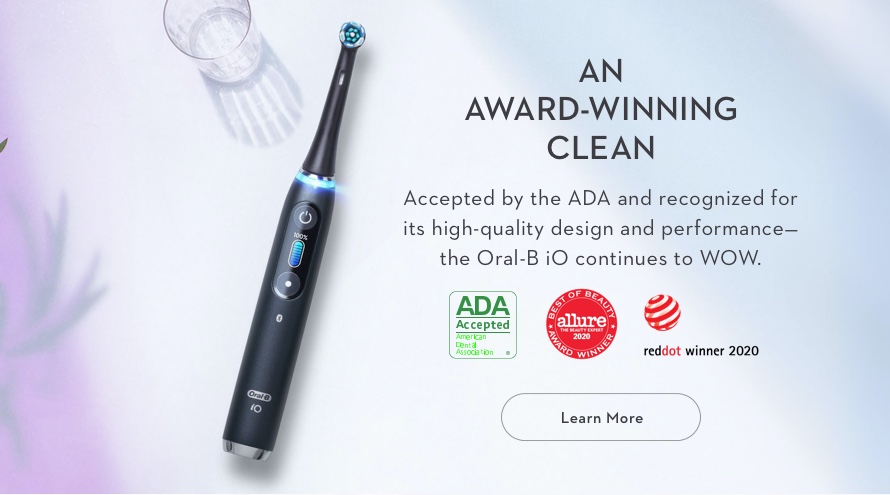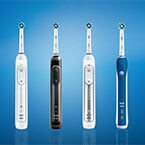How to Get Rid of Plaque and Remove Tartar Buildup

Summary
Table of Contents

This blog has been reviewed and approved by Dr Robert Lee, a dental professional of 35 years
LEARN MORE >What Is Tartar?
Even if you take good care of your teeth, you can't avoid the buildup of plaque bacteria in your mouth. They mix with carbohydrates and food byproducts to form a sticky layer called plaque. Plaque carries bacteria that penetrate under the gum line and stick to fillings or braces. These bacteria can damage enamel and lead to tooth decay like cavities. However, if you remove plaque regularly, you can prevent permanent tooth decay and gum disease.
More serious problems occur when plaque is not removed and hardens, taking the form of tartar. Tartar forms below and above the gums. Tartar is a porous and rough layer that can only be removed by a dental professional. It contributes to tooth discoloration, tooth decay, and gum disease.
How Do I Know If I Have Tartar?
Unlike plaque, which is usually colorless, tartar is visible to the naked eye if it is above the gum line. Most often, tartar has a yellow to brown hue, which greatly affects both the health and the appearance of your smile.
The build-up of tartar can be prevented. A proper oral hygiene routine is the best way to reduce your chances of developing tartar. This is where electric toothbrushes, which remove up to 100% more plaque than regular manual toothbrushes, prove very useful. It is also worth choosing an appropriate stannous fluoride toothpaste with antibacterial, and enamel strengthening properties like Crest Pro-Health Densify Daily Protection Toothpaste. Its 2X Enamel Protection System remineralizes weakened enamel and prevents demineralization for a long-lasting smile. The frequency and length of brushing is important. Proper oral hygiene will help reduce the amount of plaque bacteria on teeth, and in turn, prevent the formation of tartar.
How To Remove Plaque At Home
Removing plaque bacteria at home on a daily basis lessens your chances of tartar buildup and experiencing more serious dental problems such as cavities, gingivitis, and bad breath. Healthy dental habits, such as brushing for two minutes twice daily and flossing after every brush, can help you prevent the harmful effects of plaque buildup. If you have kids, remember: It's never too early to help them learn good oral care.
The best ways to get rid of plaque include:
- Brush your teeth at least twice a day or after meals for two minutes each time.
- Switch to electric. Oral-B® Electric Toothbrushes make it even easier to brush the dentist-recommended two minutes and remove 100% more plaque than a regular manual toothbrush. Plus, dentists recommend replacing your brush head every 3 months or sooner if you notice fraying to better ensure you get the most out of every brushing session. The dentist-inspired round brush head of the Oral-B iO2 adapts to each of your unique teeth for a more complete clean.
- Use a tartar control toothpaste. Specialized tartar protection toothpastes help remove plaque from teeth and make brushing more effective. With ingredients such as pyrophosphates and polyphosphates, they help reduce plaque and delay its re-accumulation on the enamel surface.
- Floss before and after brushing.By flossing before actual brushing, you loosen food debris, making it easier to remove later. Flossing after brushing removes food debris and bacteria that your toothbrush couldn't sweep away. However, it doesn't necessarily matter when you floss just as long as you do so at least once a day. Pair regular string floss like Oral-B Glide Floss with an oral irrigator like the Oral-B Water Flosser Advanced to further wash away plaque and food particles from hard-to-reach areas of the mouth.
- Swish with mouthwash. Choose an antibacterial oral rinse that fights bacteria in the mouth, removes plaque, and promotes gum health
Below, we describe why you should choose electric toothbrushes. Note that not only do they provide better performance when it comes to the amount of plaque removed, but they also come with technologies that help ensure that you are brushing your teeth the correct amount of time. This is especially important for children and busy people who brush their teeth reluctantly and quickly. Such toothbrushes allow you to control the time of brushing more easily, guarantee a nice smile without unsightly plaque, and at the same time help prevent gum disease.
Improve Your Plaque Removal Routine With Oral-B
This easy at-home routine, along with using Oral-B Electric Toothbrushes, can help ensure you'll keep your mouth healthy for a long time to come.
How to brush your teeth effectively with an electric toothbrush:
- Dental professionals recommend brushing your teeth for two minutes, twice a day. That means each quadrant of your mouth gets 30 seconds of brush time.
- The Oral-B in-handle timer pulses every 30 seconds to let you know when it's time to switch quadrants
- As you're brushing, make sure to hit all areas of the tooth. Some people find that they get the best clean going tooth by tooth.
- When you're finished brushing in each quadrant, be sure to brush your tongue to remove odor-causing bacteria. Then turn the electric toothbrush off while the brush is still in your mouth.
- Rinse your bristles and place the brush handle upright on your countertop to let them air dry.
Remember that electric toothbrushes help remove plaque and stains while also preventing tartar. By following these tips, you will be able to clean the spaces more thoroughly between your teeth, remove plaque and keep your gums healthy.
How To Remove Tartar Buildup
If you don't remove plaque from your teeth with proper flossing and tooth brushing, you are increasing your risk for developing a cavity and plaque buildup. Cavities are among the most common dental problems in people around the world, but good oral care, including proper flossing, can help prevent them.
And don't forget to schedule regular dental checkups for a professional cleaning and to identify problems before they become serious. If your dental professional identifies tartar buildup or a cavity early, he or she might recommend a series of fluoride treatments to help restore or re-mineralize the demineralized tooth enamel and help prevent the need for a filling. Fluoride treatments can be in the form of a gel, rinse, foam, or varnish. The fluoride product is placed on the teeth for a short time and is incorporated into the tooth structure to make enamel harder and more resistant to demineralization (break-down).
Since tartar buildup bonds strongly to enamel, it can only be removed by a dental professional to avoid damage to teeth and gums. If you start seeing any signs like a yellow or brown color on your teeth, be sure to seek treatment immediately.
Only a dental professional can remove tartar, but you can proactively prevent it with a good brushing regimen utilizing Oral-B® Electric Toothbrushes like the Oral-B iO. Featuring the latest in oral care technology, the Oral-B iO2 cleans away more plaque bacteria from more areas of the mouth to deliver a more perfect clean as it adapts to each of your unique teeth.
Plus, an Oral-B electric toothbrush like the Oral-B Pro 1000 even removes 26% more plaque than Sonicare DiamondClean* and 100% more plaque than a regular manual toothbrush.
*based on an 8 week clinical study; Ccahuana-Vasquez RA, et al., J Clin Dent 2018;29:27–32
Table of Contents
- What Is Tartar?
- How Do I Know If I Have Tartar?
- How To Remove Plaque At Home
- Improve Your Plaque Removal Routine With Oral-B
- How To Remove Tartar Buildup
-
- Related Articles

This blog has been reviewed and approved by Dr Robert Lee, a dental professional of 35 years
LEARN MORE >
Send Tips
for plaque removal tips, expert advise, and exclusive offers.

Send Tips
for plaque removal tips, expert advise, and exclusive offers.






